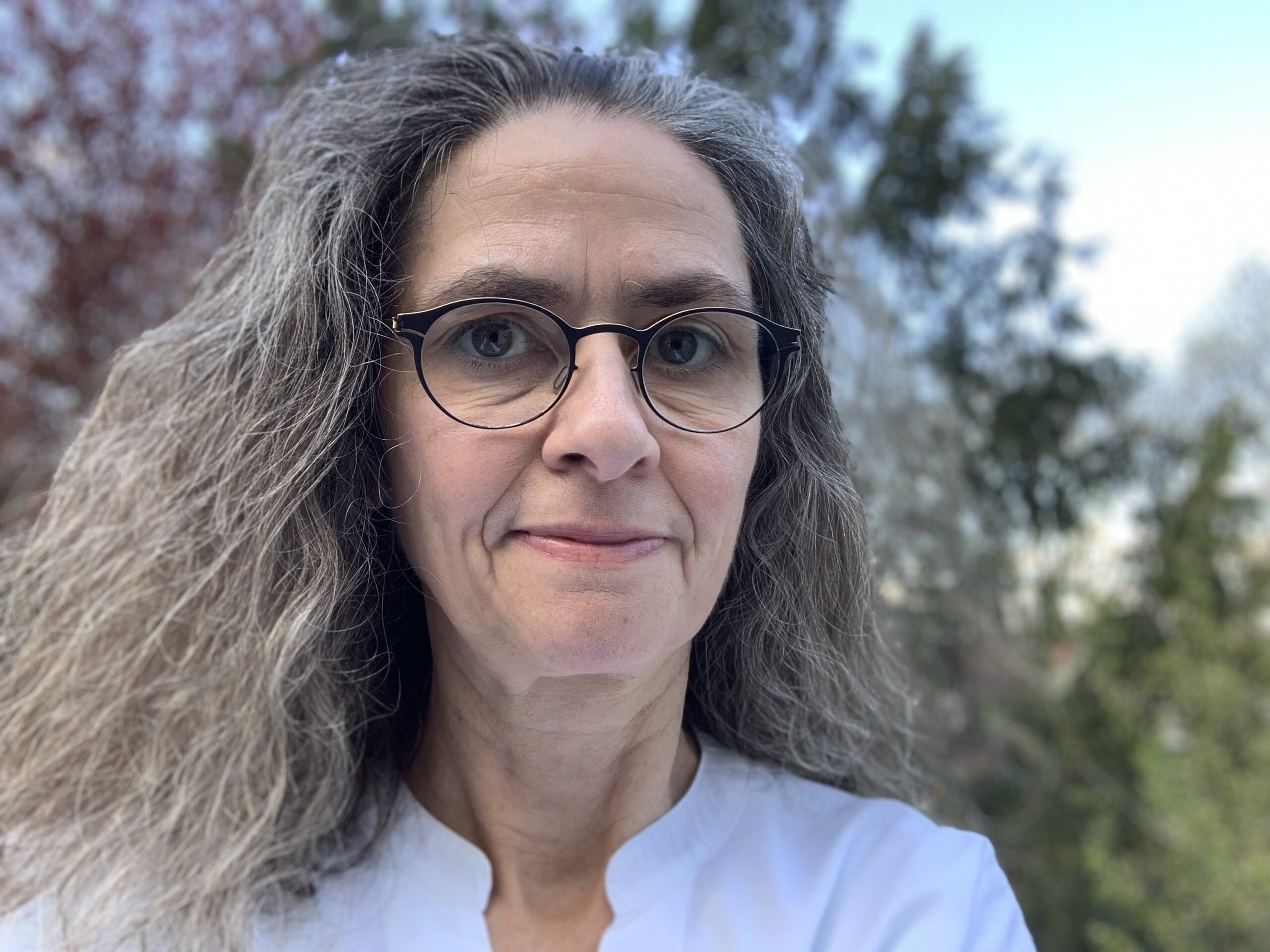Born in Trier, the oldest city of Germany • Birth year 1966 • Studied Business Mathematics at the University of Trier • Highest degree Diploma in Business Mathematics • Lives in Mainz, Germany • Leading teams in Software Development and acting as Chief Agility Master in the Airline IT Industry
In primary school, I struggled with math. My mother put a lot of effort into making me understand the difference between “plus” and “minus”. We were the first kids in Germany familiarized with set theory, working with books but also with these small boxes with plastic shapes of squares, circles, and triangles in different colors. My fascination for math started with geometry, with divisibility rules that our primary school teacher encouraged us to identify by ourselves and with the first mathematical proofs. When I was at grammar school, our teacher in mathematics told my mother: “She will never study mathematics, she is too lazy.” He was right about the laziness. My nickname is sloth, as I love lying in my hammock reading books. But I was fascinated by the ability of mathematicians to transform one problem into an equivalent one we can (easily) solve. The University in my hometown organized an open day and I attended some lectures. That’s when I decided to study math. It was a lecture about infinity and one on how to describe oscillations. This convinced me finally. When I was at university, our professors told us: “Later in your job most of you will never deal with mathematical problems like at University.”
Contrary to my professors’ prediction, I was one of the rare species among my fellow students who applied what we learnt at University.
My professor in numerical mathematics gave me the opportunity to work in a research project on optimization in robotics. Moreover, I received the opportunity to present the project at the industry exhibition in Hanover. He gave me trust, which created self-confidence I never had before. He changed my life. At this exhibition, I met my later husband. As he was living in the Rhine-Main-Region, I skipped my plan to obtain a PhD at my University. Instead, I searched for a job. This is how I started working in a very fascinating industry, the airline IT, as a software engineer in the area of flight optimization. Dijkstra for many years was and still is the algorithm of choice for solving shortest paths problems. At least it is a good basis. It is no longer sufficient due to many influencing factors such as regulations of air traffic flow. Cost optimality means reduction of fuel consumption, but also of overflight costs that are very hard to model. Contrary to my professors’ prediction, I was one of the rare species among my fellow students who applied what we learnt at University. Of course, not all problems in our industry are of this complex nature. However, developing algorithms and implementing software was complicated enough to keep me enthralled. So finally, both were wrong, my math teacher who said I would never study mathematics and the professors. Or did I want to prove them wrong?
It is a welcome change in a captivating profession of forming high performing teams, of dealing with trust-building and the soft facts of human interaction.
After 7 years, I decided to do something completely different. With my knowledge about software production, I joined a small team, the staff in the strategy department of our company. I gained insight into many different departments, sales, production, evaluation of acquisitions and business plans. Finally, I realized software production fascinates me most. So I returned, working in the role of a project manager for a completely new product development. Growing more and more into the leadership role, I was responsible for forming teams to build and operate many of our software products, applications managing the schedule preparation and operation of our airline customers worldwide. After 20 years, I returned to my roots, flight optimization. Developing algorithms for trajectory optimization is not my occupation any longer. Today, I am acting as a sponsor for our projects with the Zuse Institute in Berlin. It is a welcome change in a captivating profession of forming high performing teams, of dealing with trust-building and the soft facts of human interaction. I feel privileged, working in an international environment with diverse teams. Enhancing my knowledge by newest research in neuroscience and systems thinking is combining my private interest and profession.
The combination of rationality and empathy is not only possible; it is the theme of my story.
My favorite shape is the circle. Or is it more an upward spiral? Trust creates self-confidence. This is what I learnt in the research project at University and from my professor and my husband, who encouraged me very much in my professional development. Feedback and reflection create learning and improvement. The most amazing teams I know learnt from their mistakes and never stopped deriving actions to improve. Fearlessness creates the willingness to take responsibility. This describes very well the environment in which I could and still will grow from one role to the next. I had and still have colleagues and superiors I can talk to very openly, speaking my mind. I am not “punished” but supported in case things go wrong. As a mathematician, I have shown my ability to solve complex problems, as a leader I need to support teams to grow in a changing world. I love the following quote from Virginia Satir very much: “We get together on the basis of our similarities; we grow on the basis of our differences”. The combination of rationality and empathy is not only possible; it is the theme of my story.

